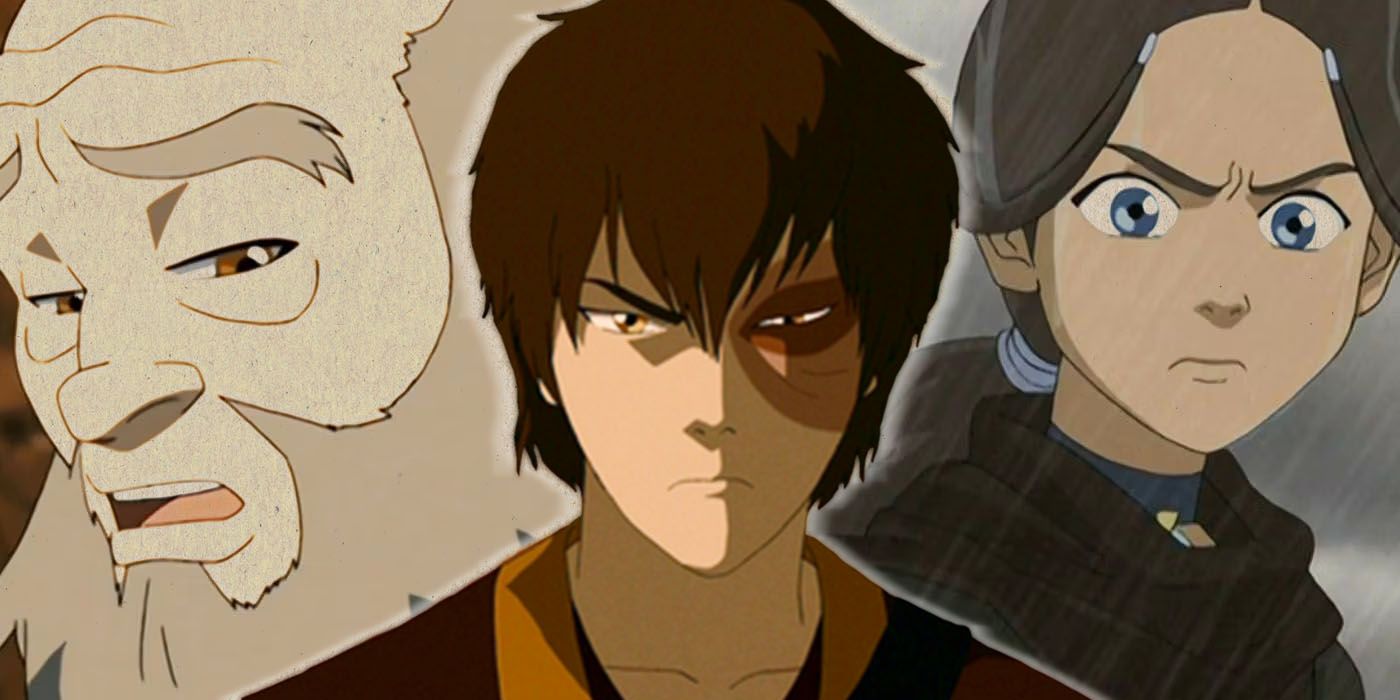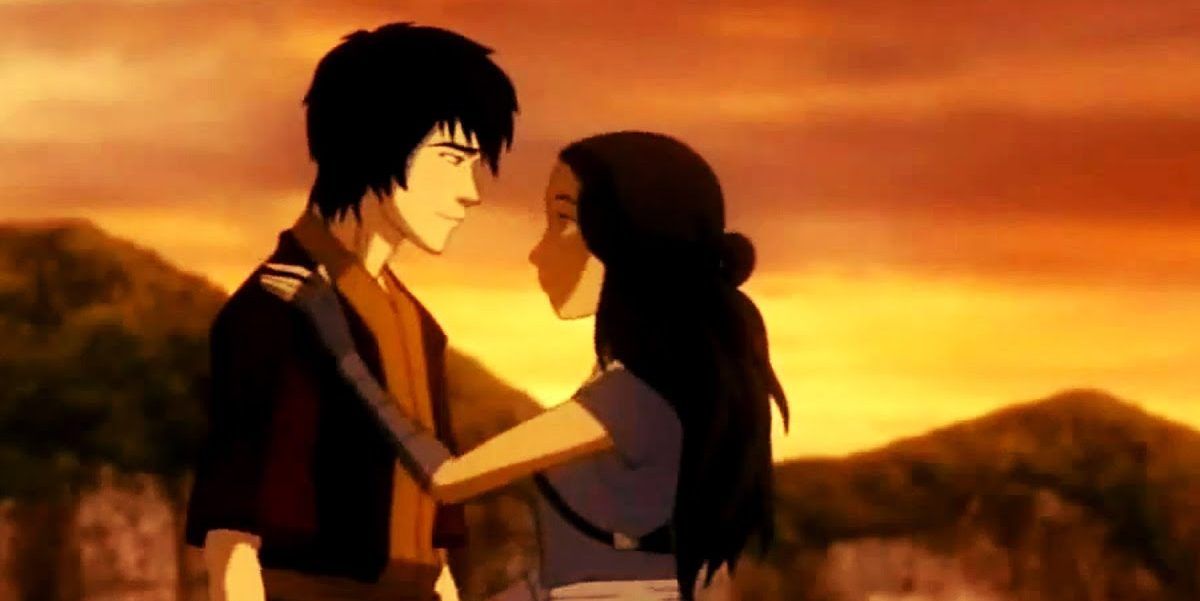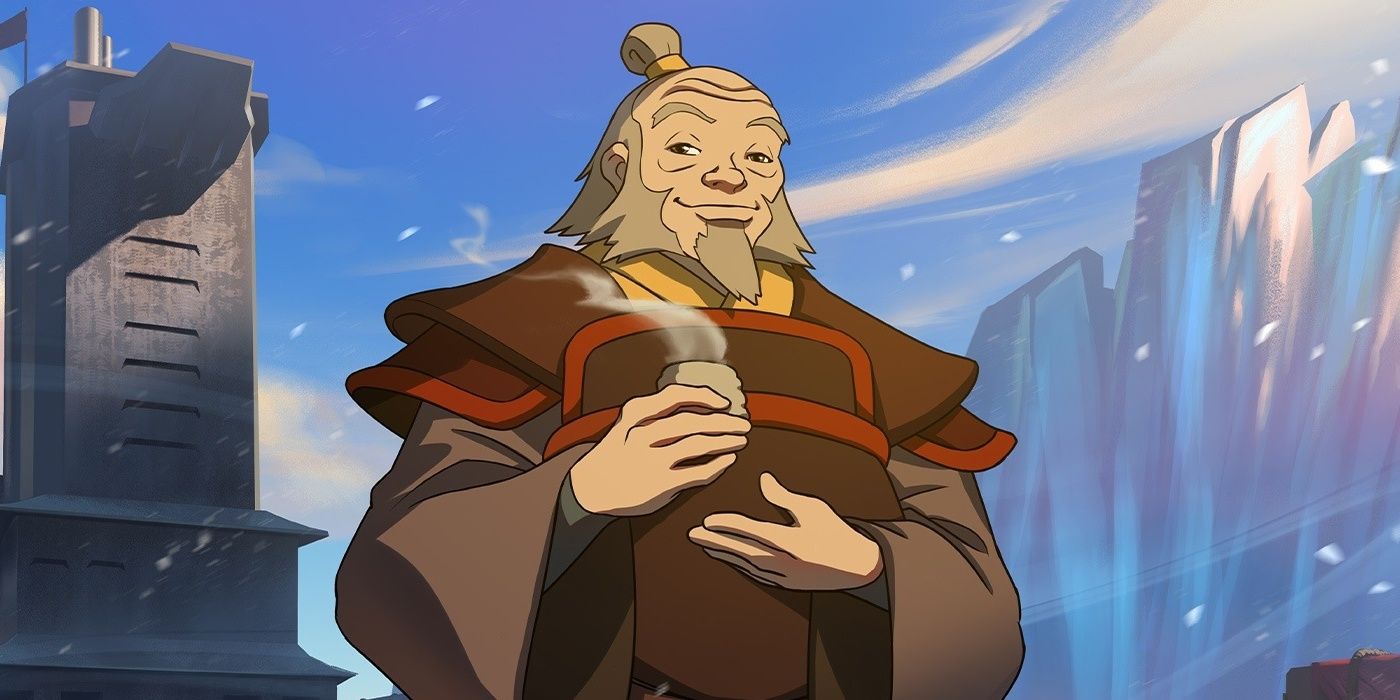Avatar: The Last Airbender explores a variety of thought-provoking and emotionally charged themes in its three seasons, with destiny and fate being major recurring ideas. It was Aang's destiny to face Fire Lord Ozai, for example, and prince Zuko realized his own destiny to help the Avatar restore peace. However, these characers first had to learn to forgive everyone -- including themselves.
Forgiveness is a major theme in fiction and is sometimes misunderstood. Forgiving someone doesn't always mean making excuses for the guilty party's actions -- it simply means letting go of all resentment, anger and vengeance to achieve inner peace and end a conflict or grudge. Characters like Aang, Toph, Zuko and Katara all did it, and always for the better.
How The Gaang Found Peace Through Forgiveness
Avatar: The Last Airbender's major characters have many deep-seated reasons to resent, dislike or even hate other people -- or at least blame those parties for their suffering. But being the inspiring, educational kids' show it is, Avatar wisely showed these characters moving beyond anger and hate to embrace forgiveness instead, which is a far more constructive route to take. Maturity takes many forms, and learning to let go of anger in favor of peace and acceptance is one route to growing up as a person. Petty grudges and feuds accomplish nothing except to destabilize a person's own soul, and as some folk wisdom puts it, a grudge is like drinking poison and expecting the other person to die.
Prince Zuko was on the receiving end of forgiveness at least twice in Avatar, and both scenes were pivotal in his famed redemption arc. For example, Zuko made a rash decision to side with his sister Azula and betray Iroh to the Fire Nation, only to regret it later. Zuko explained this to his tyrannical father during the eclipse invasion, stating his intention to find Iroh and beg for his forgiveness. Tellingly, Zuko didn't even have to speak a word to Iroh when they met -- the uncle embraced his nephew immediately. With no words necessary, they made up at once.
Similarly, Katara of the Water Tribe tried to get revenge on Yon Rha for her mother's murder, only to realize the truth of Aang's words about revenge. She did not forgive Yon Rha but did forgive Zuko, what with Yon Rha's twisted personality putting the prince into clear perspective. It was abundantly clear to Katara that Zuko, in contrast to Yon Rha, was a good person deep down who had simply made some mistakes. Katara cannot forgive murderous intent, but she can forgive a young man like Zuko for losing his way before seeking redemption.
Even Toph and Aang expressed forgiveness, though not in such clear-cut terms. Toph Beifong had always resented her parents for her stifling, isolated upbringing as a child of nobility. After running away with the Gaang, however, Toph realized that fleeing home had hurt her parents, and they'd always wanted what was best for her. So she forgave them, bringing her some much-needed peace at last. Aang himself forgave Zuko for everything the latter had done throughout the series, though he didn't say it as bluntly as Katara did. Aang's unspoken forgiveness was expressed through his newfound friendship with Zuko and his attendance at the latter's crowning ceremony as the new Fire Lord.
How Avatar's World Learned To Forgive Itself
As most members of the Gaang proved throughout Avatar, forgiveness is quite profound on a personal level -- especially in Book Three: Fire. But this theme inspires viewers not just on a personal level, but a societal one as well. Forgiveness is the first step toward peace and healing, and the Gaang members all did just that.
This also ties into the world forgiving itself for its crimes, with the four nations learning to get along in peace once again. Katara's forgiveness of Zuko is reflected on a macro scale at the end, with the Water Tribe and Earth Kingdom both forgiving the militaristic Fire Nation so they can come together and build the future as friends. As the The Promise Dark Horse comic series showed, revenge or resentment would only aggravate the wounds cut by the Hundred-Year War. Only by moving on from the war can the nations prosper side by side.
Sure enough, the others largely forgive the Fire Nation later in Avatar and The Legend of Korra lore, and even if some vague resentment remains, forgiveness still paves the way toward prosperity. In The Rift, the Gaang discovers a joint Fire Nation-Earth Kingdom company called Earthen Fire Industries that runs the world's first joint venture, the Earthen Fire Refinery. As a gesture of goodwill, the Fire Nation also dissolved most of its Earth Kingdom colonies which made forgiveness easier, and the largest colony went on to become Republic City itself.
It was a grand gesture of forgiveness for the other nations to cooperate with the Fire Nation to build something new together. This is how the world healed -- by forgiving one another, they could turn a scar, the Fire Nation colony, into a beacon of economic and cultural progress for all to enjoy. Symbolically enough, it was Aang and Zuko who originally founded Republic City as a brand-new entity, distinct from the Fire Nation colony it once was.



